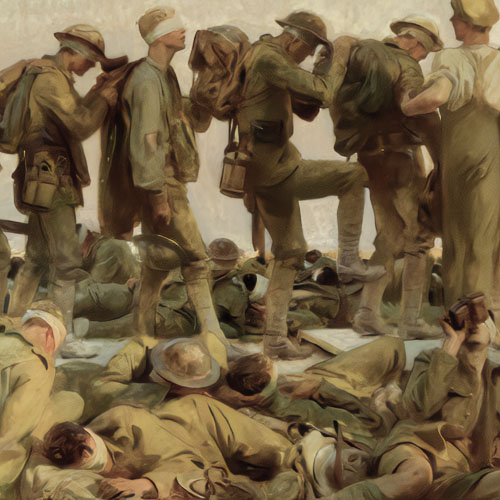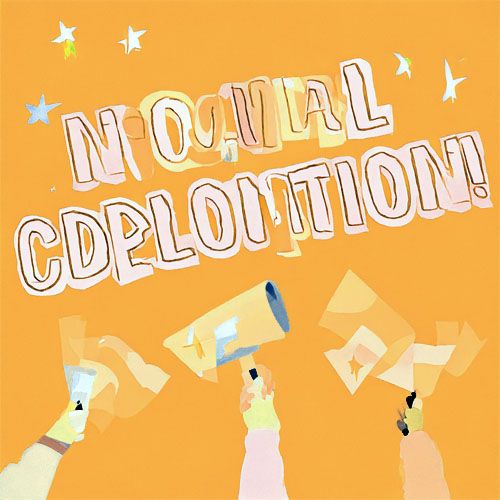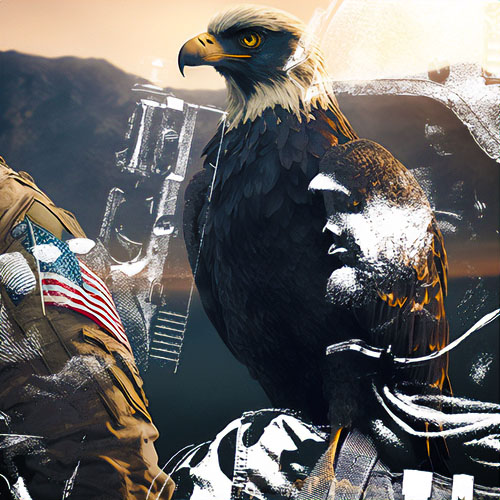Is there a point to President Trump’s Military Parade? We’d like to think so.
Pomp, Circumstance and the Parade
Ready or not, here it comes: Trump’s military parade is a go this coming fall.
Is it necessary? No, it’s really not. It’s not like twenty-first century America’s lacking for pageantry when it comes to war and the military. Is it responsible? We’re in year 17 of an endless war on terror and extremism, and estimates peg this parade in the area of $30 million. It is decidedly irresponsible. Will it be fun? You know, even this crabby Irishman has to admit it’ll probably be a really good time.
We’re still months away and I already know I’ll use it as an excuse to get away from the family for a weekend and drink too much with friends and former brothers and sisters in arms and wake up on my brother’s couch wondering why and how there’s a bruise shaped like the state of Missouri on my leg.
Tanks and artillery guns and polished infantry soldiers rolling down Constitution Avenue may prove a strange sight, but something similar happened post-Gulf War and the soul of the republic didn’t immediately go black. We’ll be okay. (That we clearly and definitively won that earlier war is an aside perhaps worth noting. Anyhow.) What unsettled me most is the parade’s scheduled date: Veterans Day, on the centennial of the end of World War I.
Veterans Day, of course, grew out of Armistice Day, an old holiday that honored the same World War I anniversary in an ultimately futile attempt to keep human beings from killing each other for resources and power. Having an inaugural tribute to a military mired in perpetual conflict on the centenary of that seems…vulgar is one word that comes to mind. Dense is another. Here’s World War I vet and writer Robert Graves with some thoughts on the subject, from his poem “Country At War”:
“And what of home — how goes it, boys/ While we die here in stench and noise?”
A hundred years later, it shouldn’t be about us. It should still be about them.
Then there’s the whole Veterans Day overlap.
In theory, I get it. We have three main patriotic holidays in America. One — the Fourth of July — is reserved for fireworks and good times, while another — Memorial Day — is for honoring the fallen…and holding mattress sales. So when Pentagon chief Jim Mattis and others got tasked with the new parade, their options were limited. But there’s a not-insignificant difference between veterans and active servicemembers, and it’ll be interesting to see how that difference is navigated in the planning and at the event.
Parades remembering the past (even a nostalgic past) can convey the complexity, the mix of pride and sadness that war should conjure in a citizenry. … Can parades honoring the present do the same?
By honoring veterans and Veterans Day, society is paying homage to a fixed past — things that cannot be changed or altered, but perhaps learned from and studied. Something occurred, sometimes just, sometimes not, unfortunately, and now it’s in the annals of history. Men and women who were part of that history serve as living touchstones for those annals — walking connective tissue in a way. It can’t be said enough that war, no matter how just, is not glory. It’s state-sanctioned violence. Who knows that best, and can speak to it personally? Vets.
Parades remembering that past (even a nostalgic past) can convey the complexity, the mix of pride and sadness that war should conjure in a citizenry. Can parades honoring the present do the same? I’m not sure. I hope so. We have parade-like events already, of course, involving the active military — Fleet Week most prominently.
But a parade modeled after France’s Bastille Day, as the president wants, goes well beyond even the Fleet Week celebration and ceremony. (That Bastille Day commemorates a toppling of the rich from power is another aside perhaps worth noting. Anyhow.) What does it say about the state of America — and America’s relationship to war and service — that the spectacle of the immediate trumps all, even memory?
Hell if I know. But my man Graves might. Here he is again, from his classic 1929 memoir Good-Bye to All That: “Patriotism, in the trenches, was too remote a sentiment, and at once rejected as fit only for civilians or prisoners.”
So that’s who the parade will really be for. Which is fine, in its way. Let’s just be honest about it. Vets and civilians alike.
Which brings me back to that intersection between veteran and active servicemember: I’m sure come November everyone will be good and respectful. Vets will feel bad for the marching slicksleeves, promising to buy them drinks once it’s all over. The slicksleeves will be eager to hear some vet stories, as something in the tales may prove helpful to their future combat tours.
That vets will be watching this Veterans Day will be an oddity noticed by many but understood by few. (That’s an assumption on my part, and I suspect a couple veterans’ groups will play roles in the parade — but you really think the powers that be are gonna let the angry and the righteous in our ranks march past Dear Leader on his dream day? I’m skeptical. Though a platoon-size element of long-haired grunts who met at the VA marching down Constitution Avenue behind all the pomp and polish would be a sight to see.)
There won’t be any Bonus Army-type nonsense between veteran and soldier. Not in 2018, at least. But this parade will serve as a marker that separates the two groups a little bit more than time and experience already have. That’s uncomfortable. Not a doubt in my mind it’ll still be so, come the eleventh hour of the eleventh day of the eleventh month in Washington.
See you there.
Matt Gallagher is a U.S. Army veteran of Iraq and the author of the novel Youngblood (Atria/Simon & Schuster). He also writes for Penthouse when he can, and we like him a lot.
As some of us recall, there was a lot of controversy surrounding the sort of parade that many people view as more typical for dictatorships and authoritarian regimes than democracies. We know the first planned even got cancelled because people found out about a $92 million price tag, and then the Veterans’ Day idea got scuttled, perhaps for many of the reasons outlined here. Eventually they had a July 4th event it seems like, but like many things during that era, one has a hard time recalling what was real and what was just a sudden idea released to the world via a middle of the night tweet.
Having just past Memorial Day this year, though, one of us remembered an article that touched a note here in the office during the chaotic — or really super great, depending on one’s point of view — Trump Presidency. We dug it out again, because apparently, we’re all going to be looking back at “what was/is” for the next five months or so. Oh, goodie/dang.






















